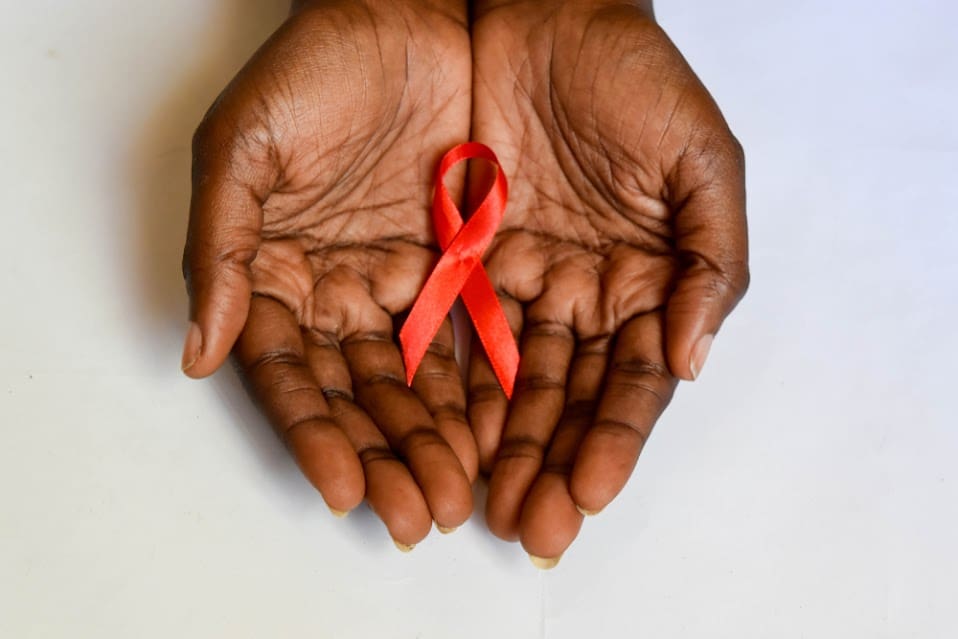Recent medical research reveals that early HIV symptoms often masquerade as common illnesses, leading many to delay seeking medical attention. Dr. Sarah Chen, infectious disease specialist at Johns Hopkins Medicine, explains that recognizing these subtle signs can lead to life-saving early intervention. The challenge lies in distinguishing these symptoms from everyday ailments, as they often appear gradually and may be easily attributed to stress, lack of sleep, or minor infections.
The truth about fever and night sweats
Medical evidence shows that unexplained fevers and night sweats often appear as the body’s first response to HIV infection. These symptoms typically emerge within two to four weeks after exposure, yet many dismiss them as seasonal ailments or stress-related issues. Night sweats associated with HIV tend to be particularly intense, often leaving bedding and clothes completely drenched. While occasional night sweats are common, persistent episodes accompanied by unexplained fevers warrant medical attention. The fever itself may seem mild, ranging from 99 to 101 degrees Fahrenheit, making it easy to dismiss as a minor ailment.
Fatigue signals your body’s battle
Persistent fatigue in HIV differs significantly from ordinary tiredness. This exhaustion stems from your immune system’s intense response to the virus, creating a profound sense of depletion that affects every aspect of daily life. The fatigue associated with HIV often feels overwhelming and doesn’t improve with rest, making everyday tasks increasingly challenging. This deep-seated exhaustion typically persists for weeks or months, unlike the temporary fatigue from overwork or stress. Many patients report feeling drained even after a full night’s sleep, with the tiredness affecting both physical and mental energy levels.
Understanding lymph node changes
Swollen lymph nodes serve as a crucial early warning system when the body fights HIV. These changes often appear subtle at first but persist beyond the duration of typical viral infections. The swelling may affect multiple areas simultaneously, particularly in the neck, armpits, and groin regions. Unlike the temporary swelling associated with common colds or flu, HIV-related lymph node changes tend to last longer and may be accompanied by tenderness. Medical experts note that these persistent changes, especially when combined with other symptoms, should prompt medical evaluation.
The impact on skin health
Skin changes often provide early indicators of HIV infection, though they frequently go unrecognized. These manifestations can range from subtle rashes to more noticeable changes in skin texture and appearance. HIV-related skin issues tend to persist longer than typical skin problems and may not respond to standard treatments. The changes might appear as reddish or purplish areas, sometimes accompanied by itching or mild discomfort. These skin manifestations often affect unusual areas of the body and may come and go over time, making them easy to dismiss as allergic reactions or minor irritations.
Musculoskeletal symptoms and joint health
HIV can significantly impact the musculoskeletal system, causing discomfort that many mistake for routine aches and pains. This pain often affects multiple joints and muscles simultaneously, creating a generalized sense of discomfort that’s different from typical exercise-related soreness or arthritis. The pain may shift locations and vary in intensity, making it particularly challenging to identify as an HIV symptom. Many patients report a deep, persistent ache that affects their mobility and daily activities, yet often attribute these symptoms to aging or overexertion.
Oral health manifestations
Changes in oral health often provide early clues about HIV infection, though these signs frequently go unnoticed or are attributed to poor dental hygiene. Persistent mouth sores, recurring throat infections, and unusual dental problems may all signal the presence of HIV. These oral health issues tend to resist typical treatments and may cause ongoing discomfort. The mouth becomes more susceptible to infections, and minor oral injuries may take longer to heal. Changes in taste perception and persistent dry mouth might also occur, affecting eating habits and nutrition.
Weight and metabolic changes
Unexplained weight changes, particularly weight loss, can signal the presence of HIV. This weight loss often occurs despite normal eating habits and may be accompanied by changes in body composition. The virus can affect metabolism and nutrient absorption, leading to gradual but persistent weight loss that’s difficult to reverse through diet alone. Some individuals might notice changes in how their body stores and processes fat, with unusual distributions of weight loss or gain in different areas of the body.
Gastrointestinal and digestive impacts
HIV can significantly affect the digestive system, causing persistent changes that many attribute to dietary issues or stress. Chronic digestive discomfort, changes in bowel habits, and recurring nausea might all signal the presence of the virus. These digestive symptoms often persist longer than typical stomach upsets and may not respond to standard remedies. The virus can affect nutrient absorption and gut health, leading to ongoing digestive issues that impact overall health and well-being.
Neurological manifestations
Early HIV infection can affect the nervous system in subtle ways that often go unrecognized. Individuals might experience persistent headaches with unique patterns different from their usual headaches. Changes in cognitive function, though mild, might affect memory and concentration. Some people notice subtle alterations in balance or coordination, or experience unusual sensory changes. These neurological symptoms might come and go, making them easy to attribute to stress or fatigue.
The emotional journey
The psychological impact of HIV symptoms often intertwines with physical manifestations, creating a complex web of health changes that affect overall well-being. Many individuals experience mood changes, anxiety, or depression, which they might attribute to life stresses rather than recognizing them as potential HIV symptoms. The emotional toll of persistent, unexplained symptoms can significantly impact daily life, relationships, and work performance.
Modern testing and diagnosis
Advances in HIV testing have made early detection more accessible and accurate than ever before. Modern testing methods can detect the virus earlier in the infection process, leading to better treatment outcomes. Healthcare providers can offer confidential testing in various settings, making it easier for individuals to seek answers about their symptoms. Regular testing remains crucial for those experiencing persistent, unexplained symptoms, especially when multiple systems of the body are affected.
Treatment and management
Contemporary HIV treatment offers hope and improved quality of life for those diagnosed early. Modern antiretroviral medications can effectively control the virus, allowing individuals to maintain their health and prevent progression to AIDS. Early diagnosis and treatment can also reduce the risk of transmitting the virus to others. Healthcare providers work with patients to develop comprehensive treatment plans that address both physical symptoms and emotional well-being.
Moving forward with hope
Michael Torres’s story exemplifies the importance of recognizing and acting on persistent symptoms. His early diagnosis allowed him to begin treatment promptly, maintaining his health and quality of life. Thanks to modern medical advances, HIV has transformed from a deadly diagnosis into a manageable chronic condition. However, early detection remains crucial for optimal outcomes. Understanding these warning signs and seeking prompt medical attention can make the difference between progressive illness and maintained health.
The stigma surrounding HIV often delays diagnosis, but modern healthcare approaches prioritize confidentiality and comprehensive support systems. By sharing stories like Michael’s and increasing awareness of early symptoms, more individuals can access life-saving treatment sooner. Remember, these symptoms may appear subtle and easy to dismiss, but paying attention to persistent changes in your health and seeking medical evaluation can lead to better outcomes and sustained well-being.













